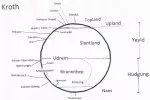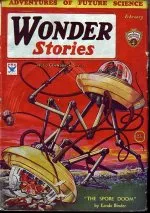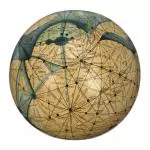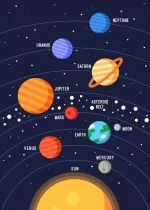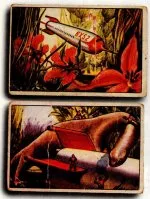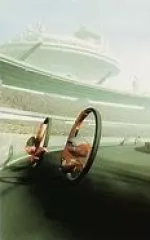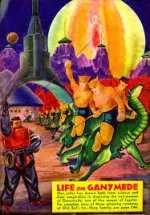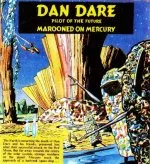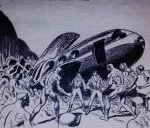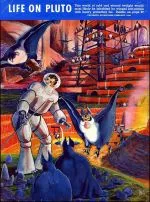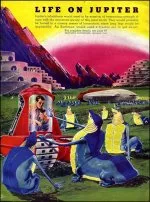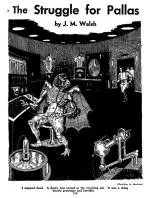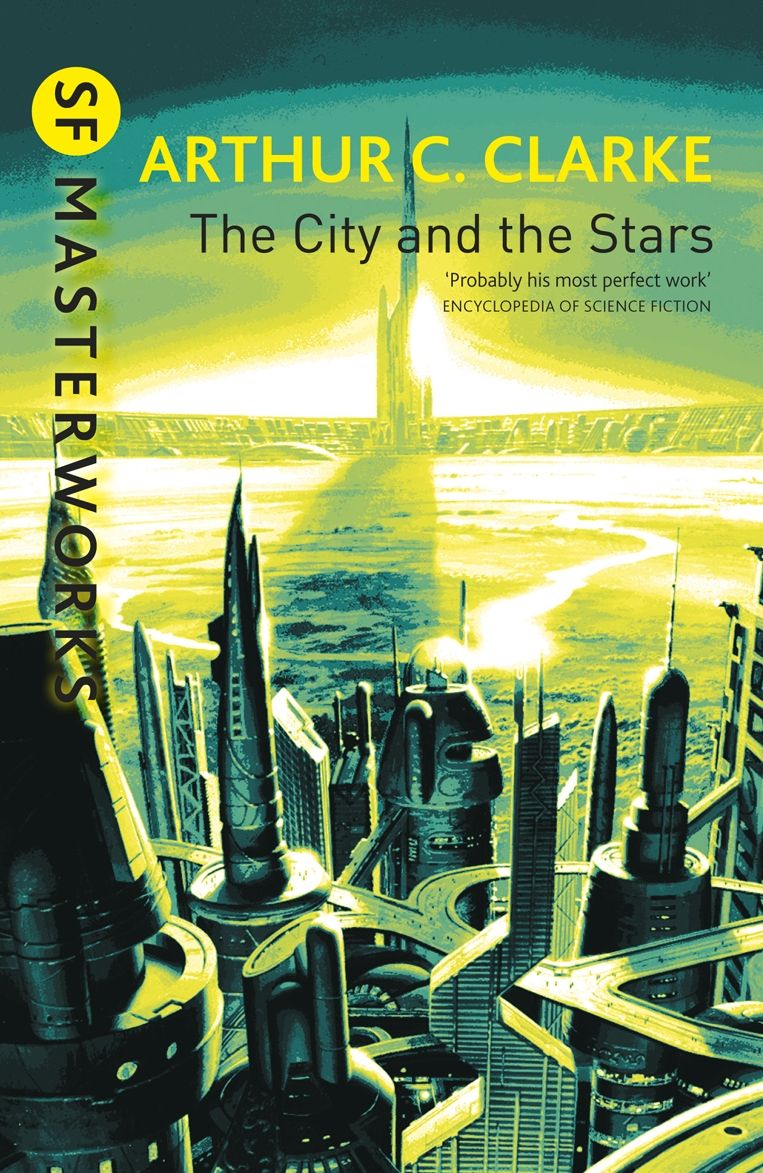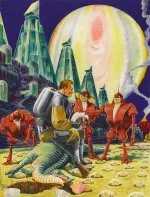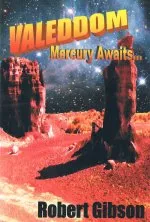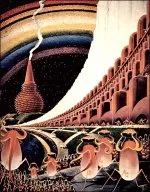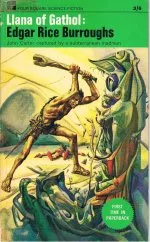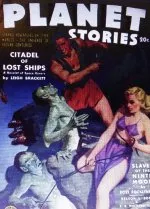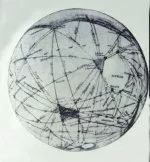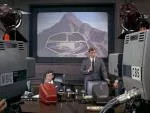creakers
writings that clunk amid the proto-oss rubble
Now for a look at what you might call the ur-OSS - as in the writings of Edwin Lester Arnold, John Jacob Astor and Garrett P Serviss...
Stid: I hope you aren't going to be too soft on these appalling scribblers, Zendexor. Try to remember that every hour which, with your encouragement, a reader may waste on these literary disasters, is that much attention denied to worthy writers. I recall the page you bestowed on Lin Carter's Thanator...
Zendexor: Ah now just a moment: not so fast: you need to bear in mind that Lin Carter even at his most tedious was a literary giant compared to J J Astor and G P Serviss, who must represent the nadir of the infant OSS genre.
As for Edwin Lester Arnold, he did not attain that level of badness. We may deal with him later, if we have time.
But with regard to your admonition, Stid, don't worry, I won't be soft. And indeed I admit it's true that a reader would do better, far better, to spend his time on the many wondrously great writings on offer in the OSS heyday, rather than waste an instant on discussions of the murky gunk at the genre's beginning. Except that - well, you see, you can find odd points of interest when rooting around in rubbish, tat, detritus...
Harlei: Buried treasure?
Stid: He just means something to ridicule, Harlei. The study of stylistic badness, of what to avoid. An instructive belly-laugh session at the expense of Garrett P Serviss' prose.
Zendexor: For starters, that's not hard to arrange.
bloviating
Nineteenth-century Fourth of July oratory may well have inspired Serviss' style. Take this passage on the announcement that Edison had invented spaceships:
When actual experiment had thus demonstrated the practicability of the invention, Mr. Edison no longer withheld the news of what he had been doing from the world. The telegraph lines and the ocean cables labored with the messages that in endless succession, and burdened with an infinity of detail, were sent all over the earth. Everywhere the utmost enthusiasm was aroused.
"Let the Martians come," was the cry. "If necessary, we can quit the earth as the Athenians fled from Athens before the advancing host of Xerxes, and like them, take refuge upon our ships—these new ships of space, with which American inventiveness has furnished us."
And then, like a flash, some genius struck out an idea that fired the world.
"Why should we wait? Why should we run the risk of having our cities destroyed and our lands desolated a second time? Let us go to Mars. We have the means. Let us beard the lion in his den. Let us ourselves turn conquerors and take possession of that detestable planet, and if necessary, destroy it in order to relieve the earth of this perpetual threat which now hangs over us like the sword of Damocles."
Harlei: Now don't you dare, Stid, to turn round and say, "What's wrong with that?"
Stid: Don't worry, I'm not that much of a contrarian; I'll stick to what I've thought all along - this is truly terrible stuff. Only... the thought will nag at me, that some of this could have been written by Edgar Rice Burroughs. All right, all right, Harlei, don't hit me -
Zendexor: When you've finished, Harlei - I give you five minutes - both of you listen to me. This is quite a telling point. I doubt that ERB would have written any of the above, but a bit earlier there's a sentence which could have come from him. It concerns the preliminary trial-trip to the Moon:
When we fell within the sphere of attraction of that orb it only became necessary to so manipulate the electrical charge upon our car as nearly, but not quite, to counterbalance the effect of the moon's attraction in order that we might gradually approach it and with an easy motion, settle, without shock, upon its surface.
But the point here is, Burroughs would only have inserted such a sentence into a much larger and more warmly, picturesquely-styled passage. And so the reader gets to trust his steering between rhythms, his variations in tone appropriate to the shape of the tale, which is why Burroughs' writing can be read relaxedly and at speed.
Garrett P Serviss, on the other hand, has only one style, one rhythm: clunk, clunk.
comparing disintegrators
Recalling Burroughs again, here is a passage from A Fighting Man of Mars:
...from what I was able to gather while the new weapon was being discussed in Jahar, I am under the impression that these rays change the polarity of the protons in metallic substances, releasing the whole mass as free electrons. I have also heard the theory expounded that Phor Tak, in his investigation, discovered that the fundamental principles underlying time, matter and space are identical, and that what the rays projected from his rifle really accomplish is to translate any mass of metal upon which it is directed into the most elementary constituents of space.
In my view, that's all fairly acceptable as a bit of pseudo-scientific mood-music. Take a deep breath now and read Serviss' treatment of the same theme:
It was upon the great scientific doctrine, which we have since seen so completely and brilliantly developed, of the law of harmonic vibrations, extending from atoms and molecules at one end of the series up to worlds and suns at the other end, that Mr. Edison based his invention.
Every kind of substance has its own vibratory rhythm. That of iron differs from that of pine wood. The atoms of gold do not vibrate in the same time or through the same range as those of lead, and so on for all known substances, and all the chemical elements. So, on a larger scale, every massive body has its period of vibration. A great suspension bridge vibrates, under the impulse of forces that are applied to it, in long periods. No company of soldiers ever crosses such a bridge without breaking step. If they tramped together, and were followed by other companies keeping the same time with their feet, after a while the vibrations of the bridge would become so great and destructive that it would fall in pieces. So any structure, if its vibration rate is known, could easily be destroyed by a force applied to it in such a way that it should simply increase the swing of those vibrations up to the point of destruction.
Now Mr. Edison had been able to ascertain the vibratory swing of many well-known substances, and to produce, by means of the instrument which he had contrived, pulsations in the ether which were completely under his control, and which could be made long or short, quick or slow, at his will. He could run through the whole gamut from the slow vibrations of sound in air up to the four hundred and twenty-five millions of millions of vibrations per second of the ultra red rays.
Having obtained an instrument of such power, it only remained to concentrate its energy upon a given object in order that the atoms composing that object should be set into violent undulation, sufficient to burst it asunder and to scatter its molecules broadcast. This the inventor effected by the simplest means in the world—simply a parabolic reflector by which the destructive waves could be sent like a beam of light, but invisible, in any direction and focused upon any desired point.
Stid: Zzzzzzzzzzz....
Zendexor: Quite.
no excuses
To anticipate some of your severity, Stid, let me make the point that the appalling prose of Edison's Conquest of Mars is all the less excusable, and all the more risible, insofar as the book claims to be a sequel to that genuine masterpiece of sf style and thought, H G Wells' The War of the Worlds.
Thus to risk comparison of his work with that of Wells, Serviss must have had a whooping allowance of self-belief...
Stid: Not necessarily. He might simply have been style-deaf. But either way, Zendexor, we are now approaching an awkward moment for you. It's time that I - as your more level-headed personality-fragment - act the part of the best friend whispering in your ear: you are wasting the readers' time. If you are able to make a case for further lingering on the work of this literary buffoon -
Zendexor: In a word - History! That's the justification! By existing, by being read at the time, a book, no matter how bad, plays its part in building the traditions of its genre.
Stid: I don't agree. It can hinder the genre, if it's bad enough. It can put people off.
Zendexor: Marginally true, perhaps - but in most cases those readers who hunger and thirst after the proper stuff aren't going to be side-tracked by clunkers. That's my statement of faith anyhow.
Besides, here's a further point: even a clunker can introduce a historic idea: for example, space-suits! As in the following indigestible prose-lump...
Provision had been made to meet the terrific cold which we knew would be encountered the moment we had passed beyond the atmosphere—that awful absolute zero which men had measured by anticipation, but never yet experienced—by a simple system of producing within the air-tight suits a temperature sufficiently elevated to counteract the effects of the frigidity without. By means of long, flexible tubes, air could be continually supplied to the wearers of the suits, and by an ingenious contrivance a store of compressed air sufficient to last for several hours was provided for each suit, so that in case of necessity the wearer could throw off the tubes connecting him with the air tanks in the car. Another object which had been kept in view in the preparation of these suits was the possible exploration of an airless planet, such as the moon.
The necessity of some contrivance by means of which we should be enabled to converse with one another when on the outside of the cars in open space, or when in an airless world, like the moon, where there would be no medium by which the waves of sound could be conveyed as they are in the atmosphere of the earth, had been foreseen by our great inventor, and he had not found it difficult to contrive suitable devices for meeting the emergency.
Inside the headpiece of each of the electrical suits was the mouthpiece of a telephone. This was connected with a wire which, when not in use, could be conveniently coiled upon the arm of the wearer. Near the ears, similarly connected with wires, were telephonic receivers...
Harlei: Gosh, do you reckon this is the first-ever mention of a space-suit?
Zendexor: As to that, I have no idea; it wouldn't surprise me if Tsiolkovsky had already worked it out; but if it was Serviss' own idea, it would probably not be the first time that a seminal notion arrived wrapped in leaden verbiage. It can happen that some people who have interesting things to say have no gift of the gab. Marco Polo's Travels are like that, I'm told.
Stid: A case of damning with faint praise. You're more or less saying, "Here's a piece of fiction that's significant for its ideas despite having no merit as a story."
Zendexor: Damning with faint praise is a field in which I graduated with honours while composing Thanator - For and Against. So, listen, there's more to come.
winging it
Here's another piece I'll call virtue-ore; that's to say, it's possible to extract a virtue from it:
Not knowing whether the atmosphere of Mars would prove suitable to be breathed by inhabitants of the earth, Mr. Edison had made provision, by means of an abundance of glass-protected openings, to permit the inmates of the electrical ships to survey their surroundings without quitting the interior.
Stid: Impressive! Fancy providing the spacecraft with windows... What will the chap think of next?
Zendexor: In the context, Stid my sarky friend, it's clear that Serviss' point refers to the numbers of the windows and their design, probably of the blister sort, to maximise the field of view. But that's not why I quoted this passage.
I refer to the spirit of let's-go-see! Those were the days when you could think of, or assume, or hope, that when we did get out there we'd zoom off and have a look round before knowing all the important stuff beforehand! Think of it - zooming off to Mars without first ascertaining whether it has a breathable atmosphere! Happy-go-lucky, spontaneous, glorious!
empathy
Stid: I take that point, but this casual effect of "winging it" is one which at that stage of literary history could be very cheaply and lazily achieved, with no particular effort or imagination, by a talentless writer.
H G Wells, on the other hand, really thought things through; consider his understanding of the Martians' place in evolution, his linking their head-expansion to our possible future as a species, and also his empathy in the other direction, where he bids us imagine how we stand as oppressors of the lower animals on our world...
Zendexor: Wells of course was incomparably the greater thinker and pioneer as well as equally incomparably the greater writer. But may I just make one small point? Or rather, let Serviss make it for me:
On both sides there was desperation. The earth was desperate because it foresaw destruction unless it could first destroy its enemy. Mars was desperate because nature was gradually depriving it of the means of supporting life, and its teeming population was compelled to swarm like the inmates of an overcrowded hive of bees, and find new homes elsewhere. In this respect the situation on Mars, as we were well aware, resembled what had already been known upon the earth, where the older nations overflowing with population had sought new lands in which to settle, and for that purpose had driven out the native inhabitants, whenever those natives had proven unable to resist the invasion.
A certain degree of moral equivalence there, you must concede! A bit of relief from the gung-ho zap-the-alien mood which admittedly predominates.
But lest you think I'm conceding too much...
gertrude's poor taste
It's time to face up to the biggest failure of content in Serviss' novel.
I've spoken of its creaky style; I haven't yet nailed its deplorable content, in respect of what ought to be the star turn - The Martians themselves.
Wells, it is true, left for his successors a hard act to follow. Consider the unforgettable first appearance of a Martian in The War of the Worlds:

...I found myself alone, and saw the people on the other side of the pit running off, Stent among them. I looked again at the cylinder, and ungovernable terror gripped me. I stood petrified and staring.
A big greyish, rounded bulk, the size, perhaps, of a bear, was rising slowly and painfully out of the cylinder. As it bulged up and caught the light, it glistened like wet leather. Two large dark-coloured eyes were regarding me steadfastly. It was rounded, and had, one might say, a face. There was a mouth under the eyes, the lipless brim of which quivered and panted, and dropped saliva. The body heaved and pulsated convulsively. A lank tentacular appendage gripped the edge of the cylinder, another swayed in the air.
Those who have never seen a living Martian can scarcely imagine the strange horror of their appearance. The peculiar V-shaped mouth with its pointed upper lip, the absence of brow ridges, the absence of a chin beneath the wedge-like lower lip, the incessant quivering of this mouth, the Gorgon groups of tentacles, the tumultuous breathing of the lungs in a strange atmosphere, the evident heaviness and painfulness of movement, due to the greater gravitational energy of the earth - above all, the extraordinary intensity of the immense eyes - culminated in an effect akin to nausea. There was something fungoid in the oily brown skin, something in the clumsy deliberation of their tedious movements unspeakably terrible. Even at this first encounter, this first glimpse, I was overcome with disgust and dread...
Harlei: There's no way to follow it, now that it's done!
Stid: Which means, Zendexor has handed Serviss the priceless excuse, that the job of description has been done and can't be redone - eh, Z?
Zendexor: Not at all. It's true that Wells has hogged all the wonder of the First Contact. But in the way that he did so, he left a clue for how to inject wonder into the follow-up. For, note that the Martians he describes are Martians upon Earth. Heavy, lethargic Martians suffering three times their native gravity. You see the gift he's left for Garrett P Serviss?
Harlei: I see what you're getting at! The first ever encounter with those Martians in their natural environment!
Zendexor: Or in space, or on some low-gravity body. Martians, at any rate, with their capabilities properly unleashed. A true gift for a follow-up author - artistic virgin territory, an untouched theme to aim at, to justify the huge risk of writing a sequel to a great book. Still a daunting challenge, of course, but hardly impossible. The author is required to make play with the danger of false ideas of familiarity: the space-travelling Earthmen, having met or studied Martians on Earth, will think they're ready for Martians off Earth, whereas really they are not. That ought to be the shock which, poetically handled, gives vivid life to the sequel.
Instead of which, we get this:
"Signal them to stop firing," commanded Mr. Edison. "We have got them down, and we are not going to murder them without necessity."
"Besides," he added, "I want to capture some of them alive."
The signal was given as he had ordered. The flagship then alone dropped slowly toward the place on the asteroid where the prostrate Martians were.
As we got near them a terrible scene unfolded itself to our eyes. There had evidently been not more than half a dozen of the monsters in the beginning. Two of these were stretched headless upon the ground. Three others had suffered horrible injuries where the invisible vibratory beams from the disintegrators had grazed them, and they could not long survive. One only remained apparently uninjured.
 might as well call him Tweel
might as well call him TweelIt is impossible for me to describe the appearance of this creature in terms that would be readily understood. Was he like a man? Yes and no. He possessed many human characteristics, but they were exaggerated and monstrous in scale and in detail. His head was of enormous size, and his huge projecting eyes gleamed with a strange fire of intelligence. His face was like a caricature, but not one to make the beholder laugh. Drawing himself up, he towered to a height of at least fifteen feet.
But let the reader not suppose from this inadequate description that the Martians stirred in the beholder precisely the sensation that would be caused by the sight of a gorilla, or other repulsive inhabitant of one of our terrestrial jungles, suddenly confronting him in its native wilds.
With all his horrible characteristics, and all his suggestions of beast and monster, nevertheless the Martian produced the impression of being a person and not a mere animal.
I have already referred to the enormous size of his head, and to the fact that his countenance bore considerable resemblance to that of a man. There was something in this face that sent a shiver through the soul of the beholder. One could feel in looking upon it that here was intellect, intelligence developed to the highest degree, but in the direction of evil instead of good.
The sensations of one who had stood face to face with Satan, when he was driven from the battlements of heaven by the swords of his fellow archangels, and had beheld him transformed from Lucifer, the Son of the Morning, into the Prince of Night and Hell, might not have been unlike those which we now experienced as we gazed upon this dreadful personage, who seemed to combine the intellectual powers of a man, raised to their highest pitch, with some of the physical features of a beast, and all the moral depravity of a fiend.
The appearance of the Martian was indeed so threatening and repellent that we paused at the height of fifty feet above the ground, hesitating to approach nearer. A grin of rage and hate overspread his face. If he had been a man I should say he shook his fist at us. What he did was to express in even more telling pantomime his hatred and defiance, and his determination to grind us to shreds if he could once get us within his clutches.
Stid: Perhaps it's time to say good-bye now? For if you plan to list and analyze all the errors of judgement in that passage, we could be here all day...
Zendexor: I'll make it short by saying: Serviss makes the Martians seem too human. Far, far too much like us.
Wells himself eventually provides a possible parallel between the two species by suggesting that the end of our evolution may be not dissimilar in some ways to Martian physiology. Serviss, however, in his choice of words and phrases, presses all the wrong buttons with - for example - "shook his fist" and "pantomime". And eventually - get this - the captured Martian produces a book and helpfully starts to teach the Terrans the Martian language! Holy smoke! I can't go on!
Let me enlist Shakespeare on my side: the scene where Hamlet upbraids his mother for having betrayed the memory of his charismatic father by opting instead for his low-grade uncle:
.....what judgement
Would step from this to this? Sense, sure, you have,
Else you could not have motion; but sure, that sense
Is apoplex'd..... What devil was't
That thus hath cozen'd you at hoodman-blind?
Stid: Or in other words, "Sheesh, mom, having known a real man like Dad, how could you ever go for a total waste of space like my Uncle?" And I might add: sheesh, Zendexor, how, having read HGW, can you read Mr Serviss' dismal stuff?
Zendexor: I sometimes wonder that myself. But then I realize, the comparison with Wells raises some quite subtle points. For example it's worth pursuing the question of what I'll call "TELWHAF". Telling the reader What to Feel.
gawi telwhaf if you can
Serviss sins often in this way: telling the reader to be excited, instead of writing in such a way that the reader is bound to get excited:
The excitement on the flagship and among the other members of the squadron was immense. It was certainly a thrilling scene. Here, right under our feet, lay the world we had come to do battle with.
It's as if a chef were to invite you to dinner, plonk the ingredients in front of you and say to you, "Here you are; cook it yourself."
Stid: And yet even Wells -
Zendexor: I'm coming to that. Wells hands out Telwhaf instructions too, now and then. e.g. "I was overcome with disgust and dread". That's merely telling you, isn't it? But then we have to say, it works when he does it. And it works because he gives us a narrator who sounds like he's reporting what he has seen and heard, and just as such witnesses do, he mixes his narrative with reflection and with declarations of feeling.
But then, so does Serviss: his narrator frequently pauses to think. So what's the difference? Is it just that one writer has a far better ear than the other, for rhythm and variety in prose? Or is it at least partly to do with the situation that is being described?
It may be that Wells had the easier task, in writing of a one-sided invasion of Earth with all its potential for atmospheric drama and the close juxtaposition of familiar associations with the unknown. It may be that Serviss, in trying to write of a real interplanetary war that would bear sufficient comparison with the invasion that preceded it, was trying the impossible.
On the other hand, if Wells had not written The War of the Worlds, we might have believed that such a work would itself have been an impossible literary feat back in 1898.
trying to be fair
Before delivering my final wallop against Serviss, here is proof that he can write effectively when he takes the trouble to do so (which, unfortunately, is almost never):
"...some of our ships were driven like bits of flaming paper in a high wind, gleaming for a moment, then curling up and gone forever".
Readers are invited to point out other examples... if they can...
the book's status as sequel
Right from the start, the story is billed as a sequel to Wells' The War of the Worlds. So it's fair to consider how far it does function in that role.
Early on, we have a departure from Wells' plot, insofar as Serviss' account has the Martian invasion covering the USA as well as Britain. Actually, this is not a bad idea; it's a sensible amendment to the Wellsian version, of which the most implausible aspect was the confinement of the Martian invasion to south-east England.
But then we come to another point which is a definite no-no. It concerns the Martians themselves.
Wells makes something very clear:
...wonderful as it seems in a sexual world, the Martians were absolutely without sex, and therefore without any of the tumultuous emotions that arise from that difference among men. A young Martian, there can now be no dispute, was really born upon earth during the war, and it was found attached to its parent, partially budded off...
The War of the Worlds, part II, chapter 2
Serviss on the other hand completely ignores this literary fact!
His Martians are specialised in a manner reminiscent of the Selenites in The First Men in the Moon - but as you will see from the following passage, this does not preclude sexual differentiation as well:
A Martian youth selected to be a soldier had his fighting faculties especially developed, together with those parts of the brain which impart courage and steadiness of nerve. He who was intended for scientific investigation had his brain developed into a mathematical machine, or an instrument of observation. Poets and literary men had their heads bulging with the imaginative faculties. The heads of inventors were developed into a still different shape.
"And so," said Aina, translating for us the words of a professor in the Imperial University of Mars, from whom we derived the greater part of our information on this subject, "the Martian boys do not study a subject; they do not have to learn it, but, when their brains have been sufficiently developed in the proper direction, they comprehend it instantly, by a kind of divine instinct."
But among the women of Mars, we saw none of these curious, and to our eyes monstrous, differences of development. While the men received, in addition to their special education, a broad general culture also, with the women there was no special education. It was all general in its character, yet thorough enough in that way. The consequence was that only female brains upon Mars were entirely well balanced. This was the reason why we invariably found the Martian women to be remarkably charming creatures, with none of those physical exaggerations and uncouth developments which disfigured their masculine companions...
So there you are. Sexy Wellsian Martians. Enough. Cheerio folks.
Edwin Lester Arnold, Lieutenant Gullivar Jones - His Vacation (1905); John Jacob Astor, A Journey in Other Worlds (1894); Garrett P Serviss, Edison's Conquest of Mars (1898)
For Serviss' reference to the people of Ceres see Unlucky Cerean Giants.
